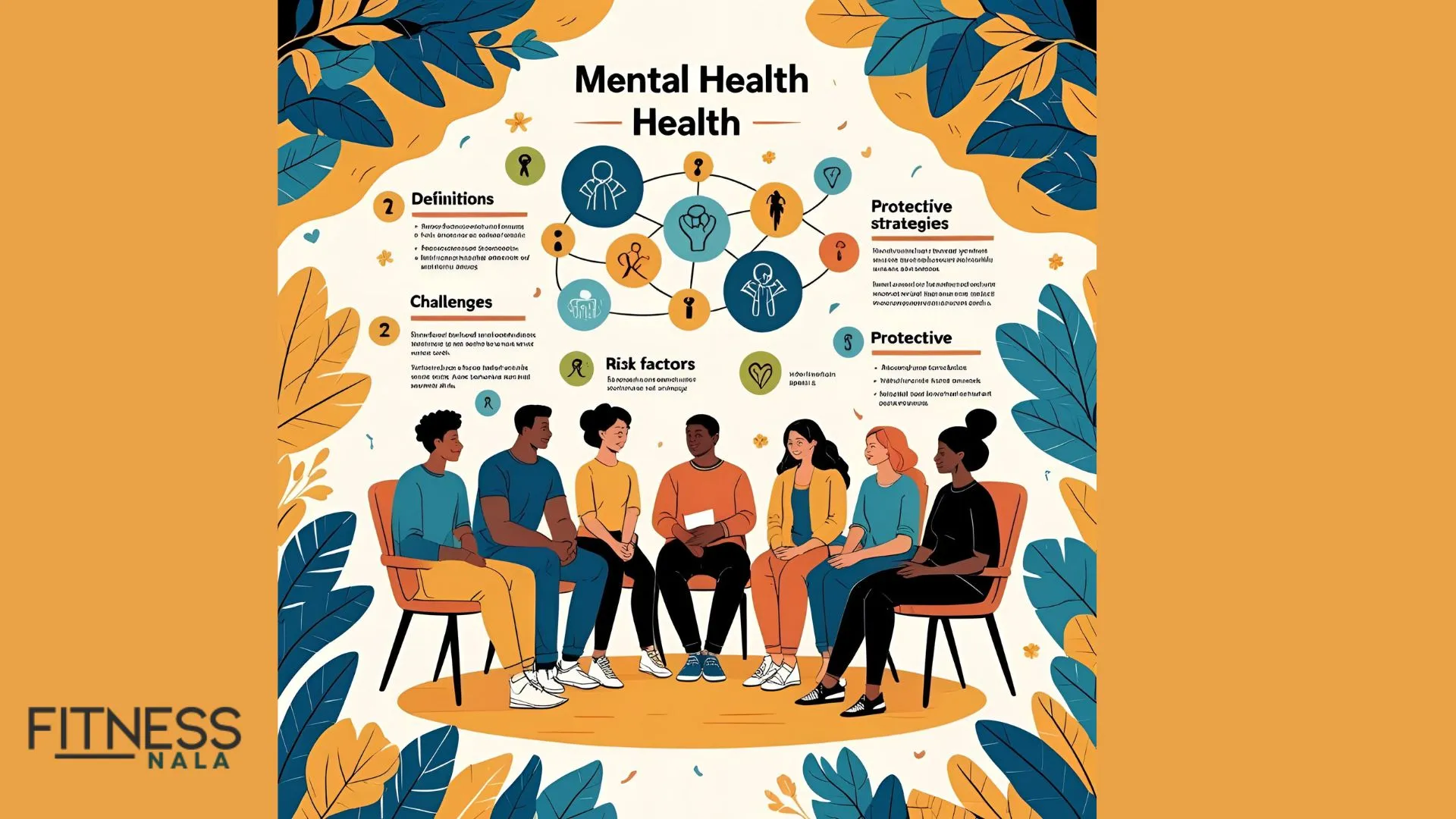Mental health impacts our daily lives. It influences how we handle stress, make decisions, and relate to others. Good mental health helps us cope with challenges and live fulfilling lives. In this article, we will explore mental health, common disorders, and how to improve your emotional well-being.
What Is Mental Health?
Mental health refers to our emotional, psychological, and social well-being. It affects how we think, feel, and act. Good mental health allows us to handle stress, relate to others, and make decisions. Everyone experiences stress or sadness at times, but maintaining strong mental health helps you manage these feelings more effectively.
The 3-3-3 Rule for Stress Relief
The 3-3-3 rule is a grounding technique designed to reduce anxiety. Here’s how it works:
- Look around and name three things you can see.
- Listen closely and identify three sounds.
- Move three body parts, like wiggling your toes or rotating your wrists.
This technique helps focus your mind on the present, reducing stress and anxiety.
What Is the Hardest Mental Illness to Treat?
Borderline Personality Disorder (BPD) is often considered one of the most difficult mental health conditions to treat. It involves extreme mood swings, emotional instability, and challenges in relationships. Treatment usually includes therapy and sometimes medication to help manage symptoms.
The 3 C’s of Mental Health
The 3 C’s are part of cognitive behavioral therapy (CBT) and focus on changing negative thought patterns:
- Catch: Recognize negative thoughts.
- Check: Question their validity.
- Change: Replace them with more balanced, positive thoughts.
This method helps manage negative emotions and encourages healthier thinking habits.
What Causes Mental Health Issues?
Mental health problems can be caused by several factors:
- Biological influences: Genetics and brain structure.
- Life experiences: Trauma or stressful events can trigger mental health problems.
- Family history: Mental health issues can run in families.
- Substance use: Alcohol and drugs can affect mental health.
By understanding these causes, we can better prevent and treat mental health problems.
Why Is Mental Health Important?
Mental health is essential for overall well-being. Good mental health enables us to cope with life’s challenges, build relationships, and make thoughtful decisions. Without it, everyday tasks become more difficult, and emotional stress can take a toll on our physical health.
Signs of Good Mental Health
Some signs of good mental health include:
- Emotional regulation: Being able to manage emotions calmly.
- Healthy relationships: Having supportive connections with others.
- Self-esteem: Feeling confident and positive about oneself.
- Resilience: The ability to bounce back from setbacks.
These are all indicators that your mental health is in a good place.
Mental Health Disorders vs. Mental Illness
Mental health disorders affect a person’s ability to think, feel, or behave. Mental illness is a broader term that includes all types of mental health conditions, from anxiety to depression. Both should be treated with care and attention.
How to Improve Mental Health?
Improving your mental health can involve several steps:
- Stay connected: Build and nurture positive relationships.
- Exercise: Physical activity improves mood and reduces stress.
- Practice mindfulness: Meditation and deep breathing can help calm your mind.
- Seek professional help: Talk to a therapist or counselor when needed.
- Establish routines: A regular schedule can help reduce anxiety and improve mental well-being.
These steps can lead to a happier, healthier life.
4 Common Mental Health Disorders
Mental health disorders come in many forms, but some of the most common include:
- Anxiety: Excessive worry and fear.
- Depression: Persistent feelings of sadness and loss of interest.
- Bipolar disorder: Extreme mood swings between high and low energy.
- Schizophrenia: A serious disorder that affects how a person thinks and perceives reality.
Understanding these disorders helps in recognizing symptoms early and getting the right help.
Risk and Protective Factors
Several factors can influence mental health:
- Risk factors: Genetics, trauma, and life stressors can increase the likelihood of developing a mental health issue.
- Protective factors: Strong social support, resilience, and access to mental health resources can help reduce risks.
Building resilience and maintaining supportive relationships can protect against mental health issues.
Mental Health Across the Lifespan
Mental health matters at every stage of life:
- Children and teens: Developing emotional skills early in life is important for future well-being.
- Adults: Life stressors like work and family can impact mental health.
- Older adults: Aging brings health challenges that require ongoing attention to mental well-being.
Prioritizing mental health at all stages of life leads to better outcomes.
Accessing Mental Health Resources
If you’re struggling with mental health, help is available:
- 988 Suicide & Crisis Lifeline: Call or text 988 for immediate support.
- SAMHSA National Helpline: 1-800-662-HELP (4357) for free, confidential help.
- FindTreatment.gov: A directory of local mental health services.
Conclusion
Mental health is an essential part of overall well-being. It affects our thoughts, emotions, and behaviors, and it influences how we interact with others. By understanding mental health, recognizing the signs of mental health issues, and adopting healthy coping strategies, we can improve our mental well-being. Remember, seeking help when needed is a sign of strength, and everyone deserves to live a balanced and fulfilling life.



